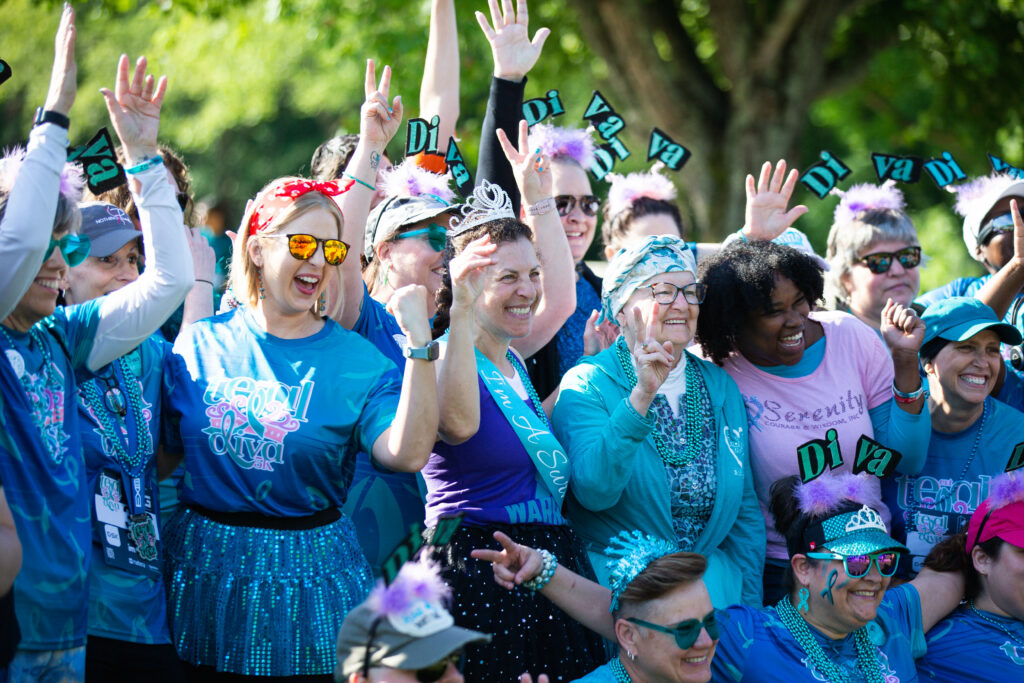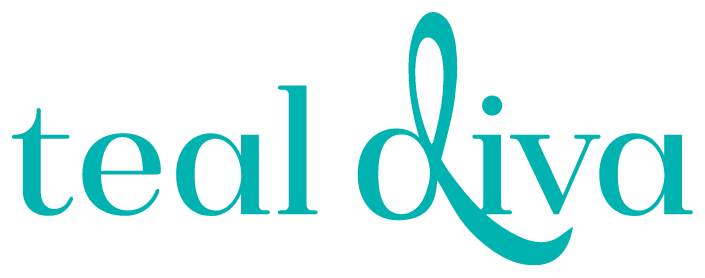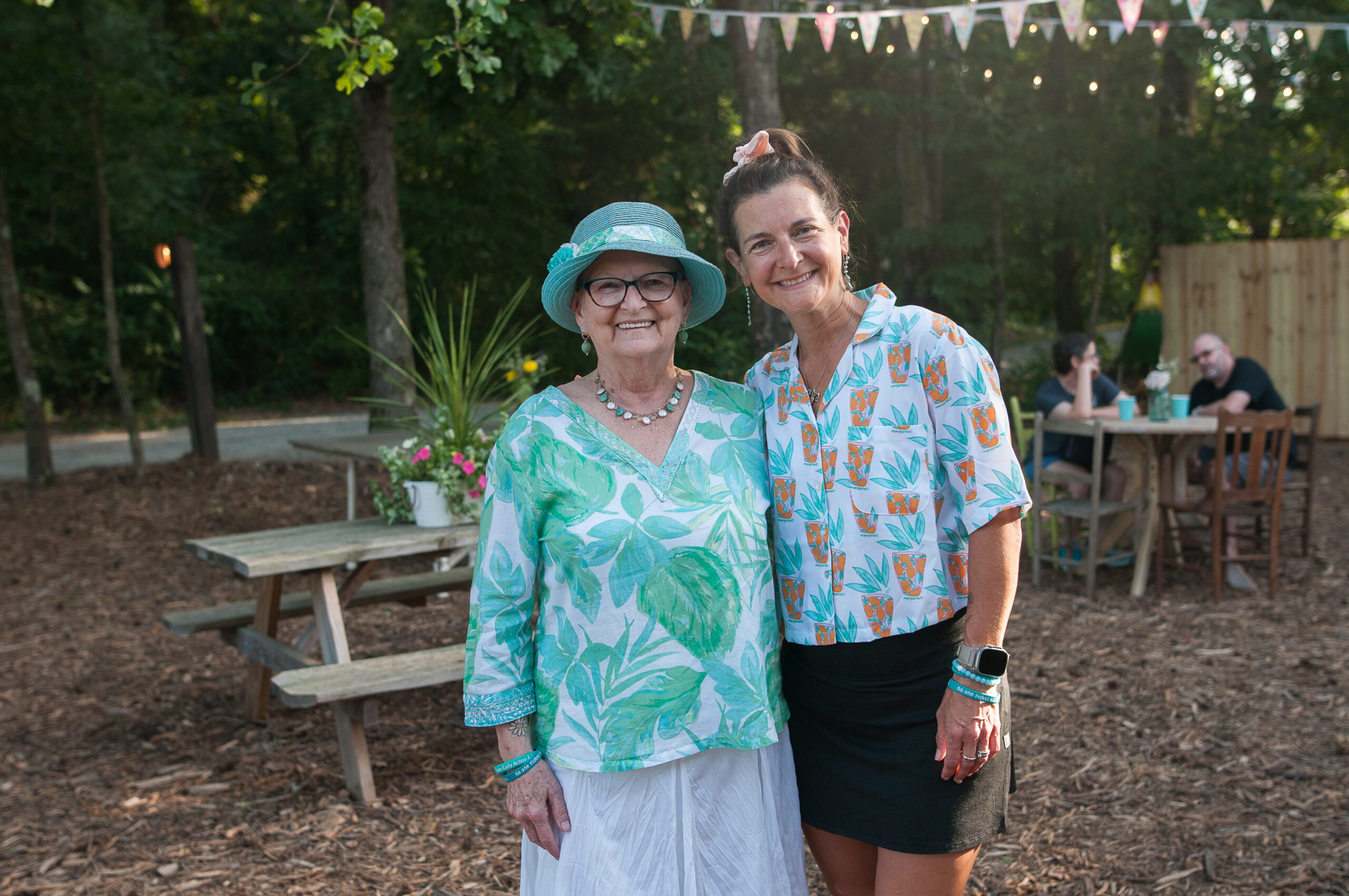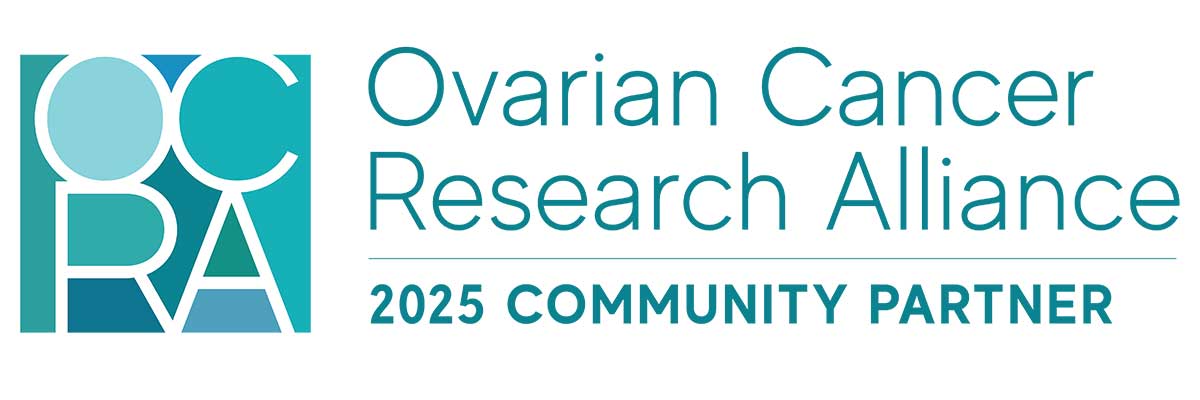Did you know May is Genetic Testing Awareness Month? Many times in the gynecologic cancer world, we hear about genetic testing and the impact our genes have on our health. Over the next few weeks, we are going to dive into some survivors’ stories that have genetic testing at the core of their diagnosis. The first thing we need to point out is that two types of testing can be done: genetic and genomic testing. They are similar but still different.
Genetic testing is “a test that looks for inherited gene mutations from a sample of your saliva, cells, or blood that could affect your cancer risk. Genomic testing is “one method your doctor can use to predict how your cancer will grow and which treatments might work best against it. It’s sometimes called “DNA sequencing.” The test looks at all your genes rather than a specific one.”
Today, we bring you a story from ovarian cancer survivor Dale, who had both genetic and genomic testing done as a part of her diagnosis and cancer journey.
I had genetic testing done shortly after being diagnosed with ovarian cancer in June 2016. That showed that I was BRCA negative and gave my doctor other info for treatment plans.
About a year into my diagnosis, I was asked by my doctor if I wanted genomic testing done. He explained that genomic testing would test my tumor. When he got the results, he told me I had the HER2 gene, and it was a good thing as it would qualify me for additional treatments. After a few failed treatments, I was given the choice of trying a clinical trial of Perjeta and Herceptin due to my HER2 diagnosis. This is a combo used frequently in breast cancer patients. I did fairly well on it, but it had a side effect of intense itching, so I decided to stop it. I’m not sure if it ever got approved for ovarian cancer. I had a few more treatments, then another HER2 trial was available, and at that point, I thought my time was up, as I had a pleural effusion, was having to use a walker, and my options were getting slim. So I said, “What do I have to lose?”. This trial was new and had never been tested on humans. It was called BB1 with Optivo. It was my fountain of youth. After one treatment of the BB1, the plural effusion was gone, everything got better, and I felt great. Unfortunately, after 9 months, I had a slight tumor progression, so I was disqualified from this treatment path. It was back to traditional chemo and more side effects. For a few more years, I had several chemo combos. Just as my options were dwindling, up popped another HER2 drug called Enhertu that was just approved by the FDA for treatment of other cancers, so my Dr. signed me up. That was December of 2023, and I’ve been on it every 4 weeks since, and so far my numbers are going down and my tumors are shrinking. The worst side effects is diarrhea and a lot of foods don’t taste good anymore, therefore I have a hard time eating. I have peripheral neuropathy in both my hands and feet from a previous treatment, so I’m trying different options to help with the pain. I continue to be positive, travel, and do all the things I love to do.

My care team at Levine Cancer Institute is great, I have complete faith in them and Dr. Naumann.
Organizations like Teal Diva provide retreats, meetups, chemo shirts, fundraisers, support, and the opportunity to connect with other survivors so we can help one another. They have been great and have had a huge impact with their support throughout my journey. I’ve received cards, gifts, flowers, love, and caring. They are a big part of my life.
Further reading and information in the blog can be found at:






